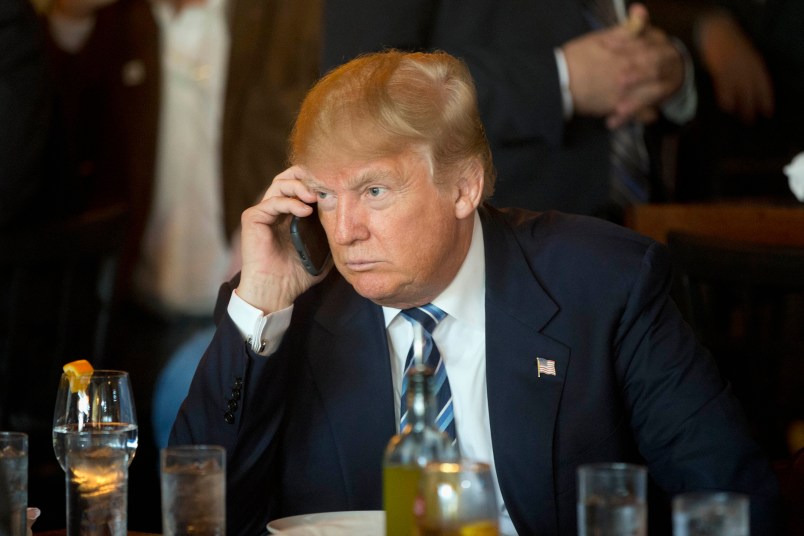We are going to learn so many things in the next four years, or however long the Trump presidency lasts. The question is how painful the education will be. One thing we are now in the process of learning, at a new level, is the 18th century nature of the American presidency.
It is not unique but it is a profound outlier in modern democratic states.
In the vast majority of contemporary democratic states, there is a statutory presidency but it has limited or merely symbolic powers. In others there is a figurehead monarch who plays a comparable role. Italy, The United Kingdom, Spain, Israel, Greece, The Netherlands, Belgium, Japan, Canada, Australia, India, the list goes on and on. In none of these countries does the head of government hold power in their own right or own person. They hold power because of parliamentary majorities. In practice they can hold a firm grip on power. But at any time, if things get really weird, they can be removed from office. (France is the major exception to this pattern among major power global powers which are considered democracies.)
The US President is both head of state and head of government. There are many reasons for this. Obviously the office has evolved profoundly over two-plus centuries. But the key reason is that this how the constitution writers conceived of effective executive power. The US constitution was written in reaction to the period of drift and perceived weakness that characterized the Articles of Confederation. Those had been written in reaction to the perceived tyranny of George III. When the constitution writers went back to it in 1787 it was the British monarch that they had in mind as a key reference point.
They weren’t monarchists. They didn’t want and wouldn’t accept a king. So they fashioned what amounted to a Republican king, the US presidency. The US President isn’t a creature of the legislature. He or she stands entirely apart from it. There are some failsafes. A President can be impeached and removed from office. Unlike what we saw in the 1990s, impeachment isn’t really there to deal with statutory crimes. It is a mechanism that avoids the necessity of a coup or assassination if large majorities of the Congress think the President has lost the legitimacy to hold the office.
All of us who are Americans know all of this. We’ve seen the office abused. We’ve seen a President driven from office with the threat of impeachment in living memory. But we’ve never had a case like Trump. Someone was asking me today if there are any laws or authorities who can intervene if the president is shaking down foreign governments for licensing deals or getting them to patronize his hotels or wriggle out of hallowed treaty commitments or whatever else. The answer is basically no. In the main, I would say this arrangement has served the country pretty well. But we’re moving into uncharted territory.
If the President decides to launch a nuclear attack on a foreign country for no reason at all, can anyone stop him? Not really. It’s his call. Now, obviously in practice a sufficiently crazy order might trigger a mutiny of some sort of at least mass resignations. But the President doesn’t have to run it by anyone. It is his call.
To be clear, this doesn’t mean the President is allowed to do anything he or she wants. I mean that as a practical matter there is no formal authority or power in much of a position to constrain a President from what he chooses to do. Congress can zero out budgets, hold hearings and do a lot of stuff. But these are indirect and slow moving constraints. Public opinion can do it, if the President is susceptible to it. The President’s staff or cabinet officers can exercise some influence. But they can all be fired at will.
Impeachment is the only true check on executive power. It doesn’t matter how unpopular a President gets or how much they lose the confidence of their party. That person is President for four years.






